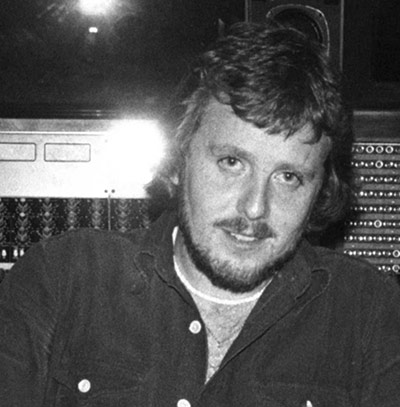MARTIN BIRCH
Martin Birch was an English music producer and engineer who was active from the late 1960s to the early 2000s. He was born on 26th June 1948 in East Molesey, England, and began his career as a producer and engineer in the late 1960s, working with several notable British bands of the time, including
Deep Purple
,
Iron Maiden
,
Rainbow
and others.
Birch's biggest contributions to music came in the 1970s and 1980s, when he worked as a producer and engineer for several of the most influential and popular heavy metal bands of the era, including Black Sabbath, Rainbow, and most notably, Iron Maiden. He was an important figure in the development of the heavy metal genre, and is widely regarded as one of the most influential and important producers of heavy metal music.
Birch's approach to production was characterized by his use of powerful and dynamic sound, which helped to define the sound of heavy metal in the 1970s and 1980s. He was known for his ability to bring out the best in the musicians he worked with, and for his willingness to experiment and take risks in the studio. He was also known for his commitment to quality and his attention to detail, which helped to ensure that the albums he produced had a timeless quality and still sound great decades after their original release.
Birch worked with
Iron Maiden
for over two decades, producing several of the band's most iconic and enduring albums, including "The Number of the Beast," "Powerslave," and "Somewhere in Time." He was an important part of the band's creative process, and helped to shape the band's sound and style.
Martin Birch retired from music production in the early 2000s, but his legacy lives on through the music he produced and the countless musicians he inspired and influenced. He is widely regarded as one of the most important figures in the history of heavy metal music, and his contributions to the genre continue to be celebrated and revered.
Martin Birch's production style was known for its clarity, power and dynamic sound. He was an early adopter of using multi-track recording and employed innovative recording techniques, such as creating layered soundscapes by recording and re-recording guitar parts multiple times, to achieve his desired sound. He was also known for his use of echo and reverb to create a sense of depth and space in his recordings.
Birch was known for his ability to bring out the best in the musicians he worked with and his hands-on approach to production. He was often involved in the arrangements and would often suggest changes to the songs to enhance their impact. He was also known for his attention to detail, taking the time to get the sound just right, and his dedication to quality, always striving to make each album sound as good as it could.
Aside from his work with Iron Maiden, Birch also produced albums for several other influential heavy metal bands, including
Judas Priest
,
Black Sabbath
and
Rainbow
. He was also sought after by other musicians from outside of the heavy metal genre, and worked with artists such as
Fleetwood Mac
, The Move, and
Deep Purple
.
Birch was awarded with several gold and platinum records for his work, and was recognized for his contributions to the heavy metal genre with induction into the Heavy Metal Hall of Fame in 2006.
Although Martin Birch retired from music production in the early 2000s, his legacy continues to inspire and influence musicians and producers today. He is widely regarded as one of the most important and influential figures in the history of heavy metal music, and his work continues to be celebrated and enjoyed by fans of the genre around the world.
